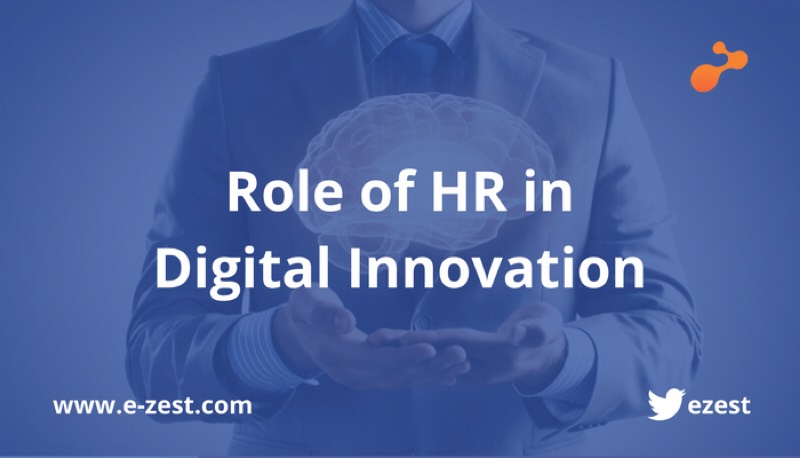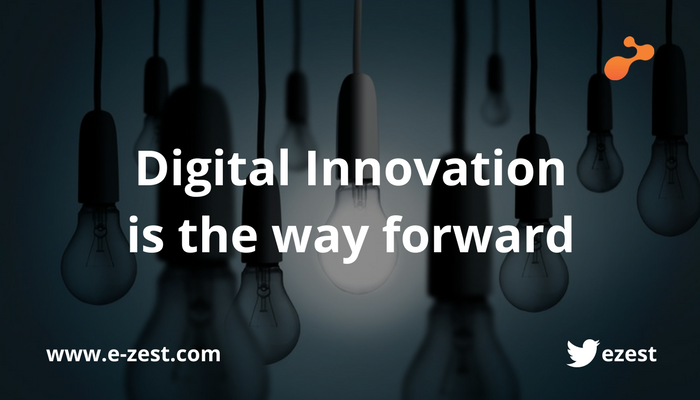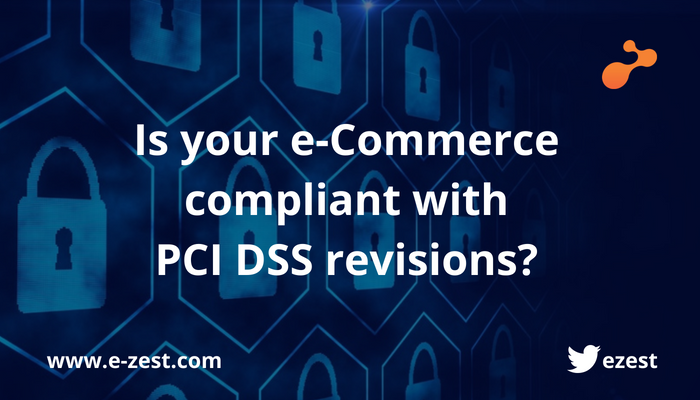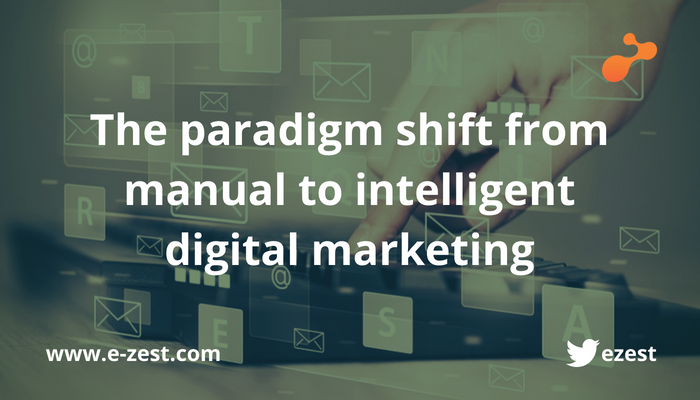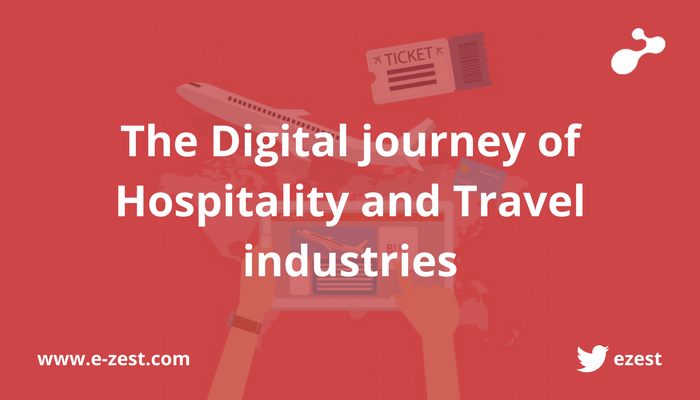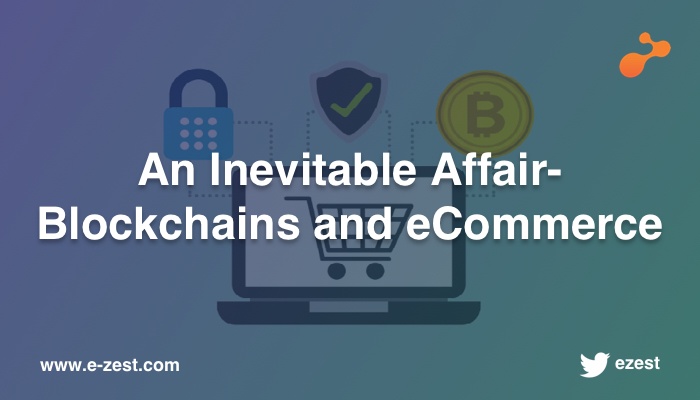This blog is meant to be an abridged guide to help you pick the right technology management partner.
It is a no-brainer that digital is the way to go. Yet, businesses shy away from realizing that they need to budget for digitization to be able to swim to the shores.
Most Americans prefer to shop online so it makes sense to take your business online (even if the business has a physical location) so that you can reach as many customers as possible. Despite this, nearly 50% of small businesses have not opted for an online presence much less a space for more technology, according to a survey put out by Clutch, a credible data-driven company providing field guides for B2B businesses.
I believe that unless you are a mom-and-pop store, you do need to take your enterprise online. Moreover, you also should swim with the tide and not against it. AI, digital commerce, and mobile applications are the tides you want to look out for. Many would argue that they are happy with their Facebook page and website, but those are the very businesses that would either cave into digital commerce sooner than later or fizzle out like a spring in an endless summer.
A digital presence is more than just a social media presence, which will only help to keep your head above water. As such you need to do more, to give your business a backbone because your customers are no longer simple folks with small demands. You can blame the giants like Amazon, Microsoft, Google all you like, but the truth prevails. Your customers now want more than just your product or service. They care about presentation and delivery. They care about how much time they can save, and they care about the effort it takes to get a product or service. And I bet, they care about creativity and ease. As a business, your customer drives and excites you, just as the reverse. Remember that time when you waited to make an investment decision and later regretted it because you let a superb opportunity slip through your fingers while you witness your competitor reap the benefits? Well exactly! So get into the game while you have an edge and embrace digital transformation. “There's No Going Back” is not just a song by Australian rock band Sick Puppies. Thankfully you can always opt for technology partners.
There is no dearth in the number of articles telling you the qualities that you need to watch out for while seeking a technology partner. Another instruction manual only stresses the significance of finding technology partners that would regard your business as their own and have a dedicated interest in the growth of your enterprise. The key is to look beyond the obvious determiners - so you can find the strategic needle in the haystack.
Let’s understand first the role of a technology partner. A technology partner is a company to whom you outsource your technology requirements. You can outsource some or all of your IT needs to a technology partner, with the aim of increasing your business’ growth and profitability. One of the big reasons to switch to a managed solution is that, by going with an expert, you also secure access to cutting-edge technology that can take your business to the next level. A technology partner may help you set your online business if you don’t have that in place already, or help you get an app for your online business, or it may make you more trendy vis a vis cognitive technologies. Simply put, they can navigate your business toward the future.
It is always reasonable to outsource than to have an on-premise IT team. Of course, you do need a small team, but for the bigger tasks, turning to a Technology Managed Service Provider (TMSP) frees up your IT team to focus on your business model and internal initiatives, while many of the routine or bigger functions are managed by a third-party.
If you are stepping into the digital domain for the first time, I am sure you must be wondering where on the globe can you find a good pool of technology partners to choose from?
India: If you search for technology partners on Google the list generated would most likely include Indian companies. The National Association of Software & Service Companies (NASSCOM) also reported that almost half of all Fortune 500 companies choose to outsource software development to Indian outsourcing firms. Cities like Pune, Bangalore, Chennai, and Hyderabad are becoming bases for many global cyber technology companies in the Indian subcontinent. From a poor country to a concrete jungle to a call center hub to an IT industry, India is now making a mark for more than just its Bollywood industry and chicken tikka.
US: I am sure you have heard of Silicon Valley. The southern region of San Francisco Bay Area serves as the global center for innovative ideas being put into practice. The word "silicon" originally referred to a large number of silicon chip innovators and manufacturers in the region, but the area is now the home to many of the world's largest high-tech enterprises and thousands of startup-ventures.
Philippines: If you care about the American accent, Philippines should be your pick. Manila has predominantly been a destination for voice-based services as it boasts of a larger population with an acquired American English accent. It also houses lots of business and knowledge processing centers and is trying to establish its dominance in other IT services as well.
Now that you have narrowed your search to a country, the next step would be to know whom to bring on board. While eventually, it may boil down to the dollar value, it is important to play Sherlock Holmes before you settle down on the cheapest bid. We all know that quality is important in the long run!
It is a no-brainer that digital is the way to go. Yet, businesses shy away from realizing that they need to budget for digitization to be able to swim to the shores.
Most Americans prefer to shop online so it makes sense to take your business online (even if the business has a physical location) so that you can reach as many customers as possible. Despite this, nearly 50% of small businesses have not opted for an online presence much less a space for more technology, according to a survey put out by Clutch, a credible data-driven company providing field guides for B2B businesses.
I believe that unless you are a mom-and-pop store, you do need to take your enterprise online. Moreover, you also should swim with the tide and not against it. AI, digital commerce, and mobile applications are the tides you want to look out for. Many would argue that they are happy with their Facebook page and website, but those are the very businesses that would either cave into digital commerce sooner than later or fizzle out like a spring in an endless summer.
A digital presence is more than just a social media presence, which will only help to keep your head above water. As such you need to do more, to give your business a backbone because your customers are no longer simple folks with small demands. You can blame the giants like Amazon, Microsoft, Google all you like, but the truth prevails. Your customers now want more than just your product or service. They care about presentation and delivery. They care about how much time they can save, and they care about the effort it takes to get a product or service. And I bet, they care about creativity and ease. As a business, your customer drives and excites you, just as the reverse. Remember that time when you waited to make an investment decision and later regretted it because you let a superb opportunity slip through your fingers while you witness your competitor reap the benefits? Well exactly! So get into the game while you have an edge and embrace digital transformation. “There's No Going Back” is not just a song by Australian rock band Sick Puppies. Thankfully you can always opt for technology partners.
There is no dearth in the number of articles telling you the qualities that you need to watch out for while seeking a technology partner. Another instruction manual only stresses the significance of finding technology partners that would regard your business as their own and have a dedicated interest in the growth of your enterprise. The key is to look beyond the obvious determiners - so you can find the strategic needle in the haystack.
Let’s understand first the role of a technology partner. A technology partner is a company to whom you outsource your technology requirements. You can outsource some or all of your IT needs to a technology partner, with the aim of increasing your business’ growth and profitability. One of the big reasons to switch to a managed solution is that, by going with an expert, you also secure access to cutting-edge technology that can take your business to the next level. A technology partner may help you set your online business if you don’t have that in place already, or help you get an app for your online business, or it may make you more trendy vis a vis cognitive technologies. Simply put, they can navigate your business toward the future.
It is always reasonable to outsource than to have an on-premise IT team. Of course, you do need a small team, but for the bigger tasks, turning to a Technology Managed Service Provider (TMSP) frees up your IT team to focus on your business model and internal initiatives, while many of the routine or bigger functions are managed by a third-party.
If you are stepping into the digital domain for the first time, I am sure you must be wondering where on the globe can you find a good pool of technology partners to choose from?
India: If you search for technology partners on Google the list generated would most likely include Indian companies. The National Association of Software & Service Companies (NASSCOM) also reported that almost half of all Fortune 500 companies choose to outsource software development to Indian outsourcing firms. Cities like Pune, Bangalore, Chennai, and Hyderabad are becoming bases for many global cyber technology companies in the Indian subcontinent. From a poor country to a concrete jungle to a call center hub to an IT industry, India is now making a mark for more than just its Bollywood industry and chicken tikka.
US: I am sure you have heard of Silicon Valley. The southern region of San Francisco Bay Area serves as the global center for innovative ideas being put into practice. The word "silicon" originally referred to a large number of silicon chip innovators and manufacturers in the region, but the area is now the home to many of the world's largest high-tech enterprises and thousands of startup-ventures.
Philippines: If you care about the American accent, Philippines should be your pick. Manila has predominantly been a destination for voice-based services as it boasts of a larger population with an acquired American English accent. It also houses lots of business and knowledge processing centers and is trying to establish its dominance in other IT services as well.
Now that you have narrowed your search to a country, the next step would be to know whom to bring on board. While eventually, it may boil down to the dollar value, it is important to play Sherlock Holmes before you settle down on the cheapest bid. We all know that quality is important in the long run!
- An Assortment of Experiences
Gone are the days when an expert on one subject or focusing on one product would do you good. Think Amazon, and Walmart. And then think of the individual retailers. So why do multiple domain companies cause you a raised eyebrow and doubt? The more experienced an IT company is in handling various domains, the better their position to architect a solution for your company. Domain experience that ranges from an event management app to a fully functional web design, and from an integrated sales platform to an automated HR process, goes to show that they can leverage these experiences to help you. Experience coding across multiple frameworks is a thumbs up. Besides technologies, they should also be a polyglot of different industries. Don’t read negatively if you see them listing healthcare, finance, manufacturing on their website. This is a good sign to show they are agile and adaptive!
- Culture Alignment
Beyond experience, I would like to think that you have a business culture you swear by. Culture is a nebulous word for a lot of things: communication style, level of formality, gender equality, diversity, expectations, brand sophistication, and far more. Ultimately, this is about fit. If you don’t operate under the same assumptions, there’s going to be some tension. To maintain safe passage of the ship, it is important to keep the communication channel as transparent and understandable as possible.
- Discount-friendly has its limitations
Don't we all like a good discount? But discounts sometimes may compromise quality. And therefore in the case where stakes are larger, I would advise against haggling for or settling for the cheapest bid. You don’t have to be a rocket scientist to see that an IT company needs a huge stream of income to make payroll, and if they agree to mark their prices down for you significantly, be sure that someone else’s project with the big bucks will call shotgun, while your project may be put on the back burner. Trust me, you don’t want to settle for less in the digital domain of your enterprise. Value, therefore, should be calculated by assessing the less tangible things like person-hours you’re saving by opting for outsourcing, as compared to how much time was previously spent patching up leaks and putting out fires, and the final checks you have to sign.
- Bigger is not always better
My company is located in a city where IT companies of all magnitudes surround me. But don’t be fooled into believing bigger is better. You may achieve just the results you want or exceed at times with a medium sized company if the company is agile. Let me explain why. I was seated at a table beside a boy who appeared to be no more than 10 years old and his mother at a local Indian McDonalds. I heard him say to her in his American accent, “Oh, we are so used to seeing the Coke larger!" Smart observer he is! America's large size (30oz) soda cup is 1.5 times bigger than the one in Japan (20oz). In the UK and also in India, the small-sized cup appears several ounces smaller than the one in the US. A medium in the UK looks about the same size as a small in the US. So in the US, McDonald’s will give you the biggest share of soda in the world. But is that extra ounce of Coca-Cola any more beneficial than the 16 oz? You may think that bigger is good. I am simply trying to say that the size of the office (just as in the analogy of the soda above) is no indication of quality and delivery. You should instead be concerned with the longevity of partnerships. And I am not implying that you shouldn't associate with bigger technology partners. Seek the partnership you feel most comfortable with and always trust your gut! Small and medium-sized companies may be more capable than you think.
- Mobility
Beyond making sure your potential outsourcing partner has the credentials required to get their foot in the door, it’s pivotal to also evaluate how your companies will communicate. You would also need to look into how equipped the potential candidate is to handle your issues on-site at your time because even with expanded and improved networking capabilities, some issues simply won’t get solved unless someone shows up to figure out what’s going on. Can the partner you’re considering capable of getting people to you quickly on a plane? Are they available on call and are they communicating frequently about progress or pitfalls on your project? A technology partner that doesn’t communicate is a recipe for disaster.
You can either digitize on-premise or outsource the work. Whatever your choice, make one. Global business has been disrupted by digital transformation and you either play along or become lonely. If you choose the former, pick a strategic technology partner that understands the market, your customers, and your business goals, and not just on Facebook but also in the bigger frame of digital things.
In closing, here’s a final alarm that you won’t be able to turn a deaf ear to, “at least 40% of all businesses will die in the next 10 years… if they don’t figure out how to change their entire company to accommodate new technologies.” Thanks John Chambers, Executive Chairman of Cisco System for this message.
You can either digitize on-premise or outsource the work. Whatever your choice, make one. Global business has been disrupted by digital transformation and you either play along or become lonely. If you choose the former, pick a strategic technology partner that understands the market, your customers, and your business goals, and not just on Facebook but also in the bigger frame of digital things.
In closing, here’s a final alarm that you won’t be able to turn a deaf ear to, “at least 40% of all businesses will die in the next 10 years… if they don’t figure out how to change their entire company to accommodate new technologies.” Thanks John Chambers, Executive Chairman of Cisco System for this message.

